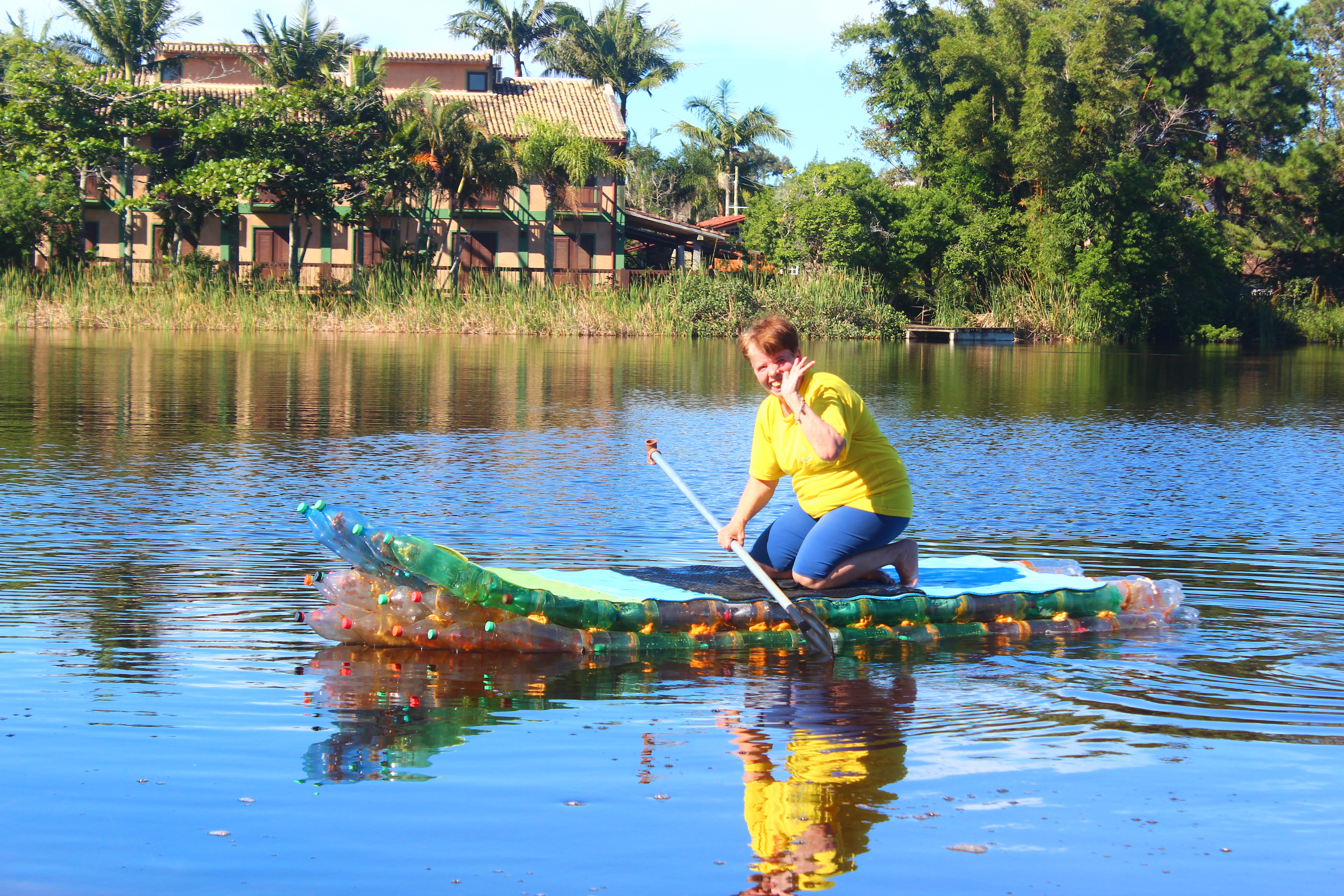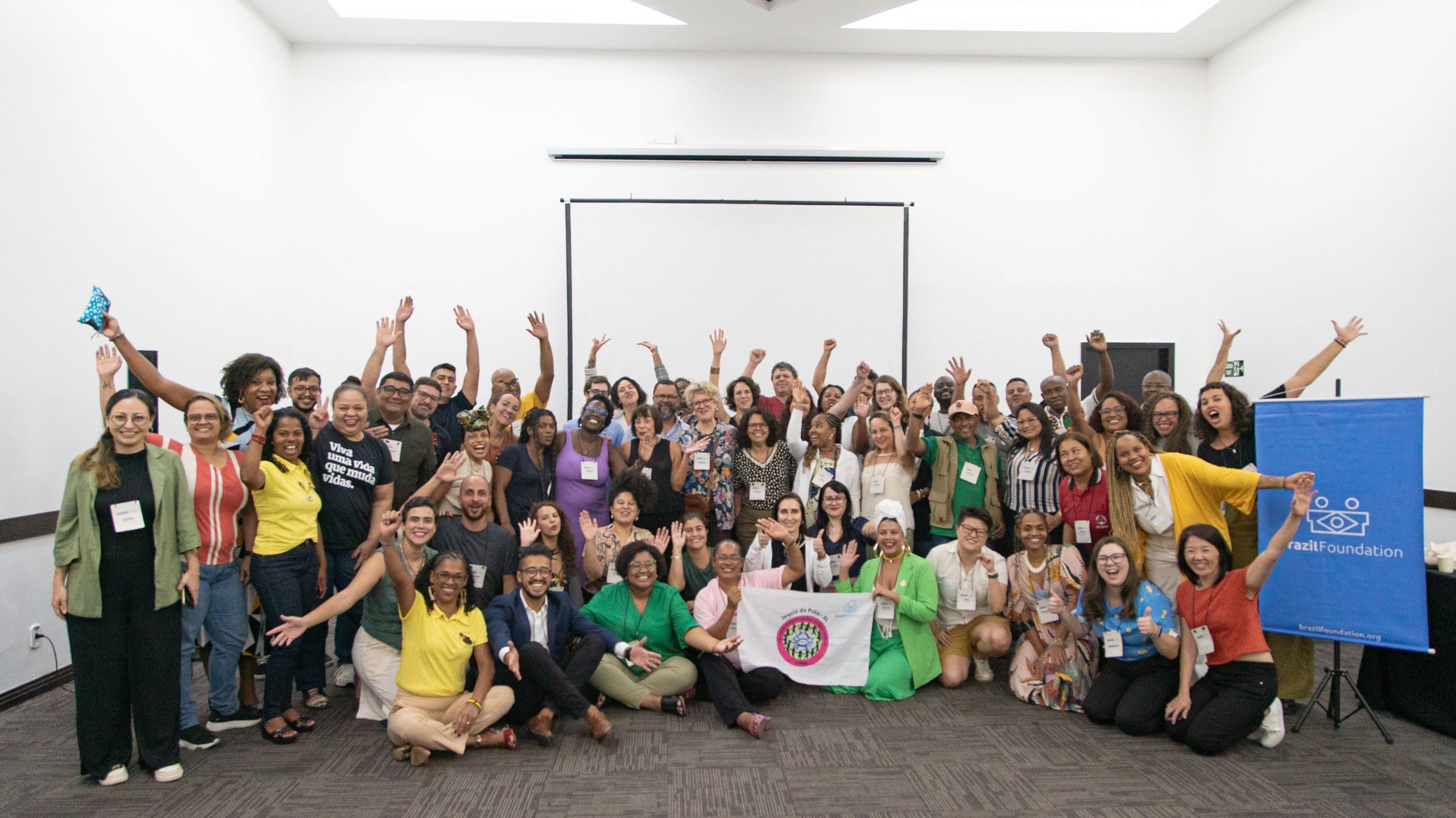Grantees Tell Us How to Reduce Plastic Pollution This World Environment Day
Today is World Environment Day, and this year the theme is “Beat Plastic Pollution” – how we can change our lifestyles to reduce our plastic consumption and waste. A few of the 2018 grantees that promote environmental sustainability and eco-friendly lifestyles are celebrating the day and sharing how they contribute every day to environmental education.
Ecogaropaba
Garopaba, SC
Associação Eco Garopaba was founded by a surfer who wanted to reduce the volume of trash and severity of the damage caused by litter in the oceans. The Association decided to make surfboards from recycled plastic bottles as a way to promote environmental awareness and the practice of sports. Their work also includes training people to teach in schools and in the community.
Their project aims to spread awareness throughout Garopaba on the need for waste management, correct waste disposal and recycling. Students from public schools will also learn how to build surfboards from recycled plastic bottles as a source of income, and be trained as multipliers to share this knowledge with others.
For World Environment Day they will make a video addressing the problem of plastic pollution and the impact that is has on the oceans.
“Our greatest dream is to spread our project around the world, since we know how important we can be when we reach a child. And in terms of the environmental impact that we wish to have, it’s to be able to educate the most people as possible through environmental education, to reduce consumption, and to [teach] proper garbage separation and recycling.”
[envira-gallery id=”23510″]
Instituto de Permacultura EcoVida São Miguel
Serro, MG
The initiative organizes task forces and hands-on courses in bio-construction techniques and promotes eco-friendly design, eco-sanitation, synthetic agriculture, permaculture, and the solidarity economy. The institute is based in the Rio Doce, Jequitinhona and Manhuaçu Basins, areas experiencing environmental challenges from mining, real estate speculation, unplanned urbanization and monoculture.
Their project “LARboratório Guia de Permacultura” aims to teach practical technical solutions that any community can adopt – independent of the available public resources – to quilombolos, farmers and youth in the region.
“Throughout the trajectory of our work as permaculturalists, we’ve believed that we must make ourselves responsible for all of the waste that we produce. With this belief, we started putting all of our dry waste in 5 and 10 liter water jugs. Over time we accumulated a large number of these jugs, which we eventually used to create the wall for the Rocket Stove-style eco-stove that we were building.
We prefer materials made from natural, locally-produced fibers. We avoid plastic materials since they are made from petroleum. We suggest to our followers that they find ways to use less plastic packaging and instead give preference to reusable products.”
EcoVida has some tips on how to reduce your environmental impact by curbing plastic use:
• Choose to buy products directly from farmers, at local fairs, or directly in groups to strengthen the short production and consumption life-cycles. Doing this we can decrease the need for packaging, as the products come directly from the farm to the table, with no need for stocking or long-distance transport.
• Consider artisanal, handmade products made with plastic alternatives like certified or salvaged wood, plant fibers and other renewable resources.
• Practice conscious consumption by choosing to buy from environmentally-friendly businesses as well as reducing your consumption of plastic materials.
• Choose cloth or paper bags and boxes over plastic ones.
• Bring your own cup to social events.
• Don’t drink coffee from disposable cups. It’s bad for your health!
[envira-gallery id=”23511″]

